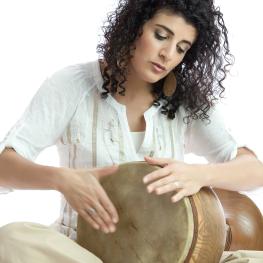Mini-Course: Israeli Music Goes Mizrahi
Understanding Israel through Its Music
Online
Zoom link to be provided
Password required
Thursdays: January 11, 18, and 25, 2024
The changes in Israeli music over the country’s short history mirror significant historical and social developments. While during Israel’s first few decades its music represented the European tastes of its Ashkenazi founders who defined “Israeliness,” by the 1970s this cultural legacy began to be challenged. We will explore, in particular, the ways in which Israeli music has gradually shifted significantly to allow a space for Mizrahim to feel that the nation’s music represents them as well.
About Katz Center Mini-Courses
Mini-courses examine special topics in Judaic studies in a setting comparable to a college seminar, taught by international faculty to adult learners online. They are designed to be cumulative and interactive, so registration is for the entire course, not individual meetings.
Enrollment is limited and registration is first come, first served. A small number of scholarships are available; please contact Dajana Denes Walters if cost is a barrier.
Featuring
Galeet Dardashti
New York University
Galeet Dardashti is a performer, anthropologist, and advocate of Middle Eastern and North African Jewish culture. She founded the all-woman Middle Eastern Jewish ensemble, Divahn, and received a Six Points Fellowship to pursue her multidisciplinary project and nationally acclaimed solo release, The Naming, which interprets some of the compelling women of the Bible. In her upcoming commissioned release, Monajat, Dardashti reinvents the reflective musical ritual of penitential prayers (seliḥot) using digital technology to sing with recordings of her famed Iranian grandfather. As a scholar, Dardashti’s work examines Mizrahi cultural politics/music, and Israeli media. Her current book project explores the Mizrahi piyyut (sacred poetry/song) phenomenon in contemporary Israel. Dardashti has also begun research on progressive, millenial Sephardi/Mizrahi North American Jews. She has been a postdoctoral fellow at NYU and Rutgers and assistant professor/musician in residence at JTS. She is currently a visiting professor at NYU.
Cosponsors
We gratefully acknowledge the support of the Klatt Family and the Harry Stern Family Foundation.
